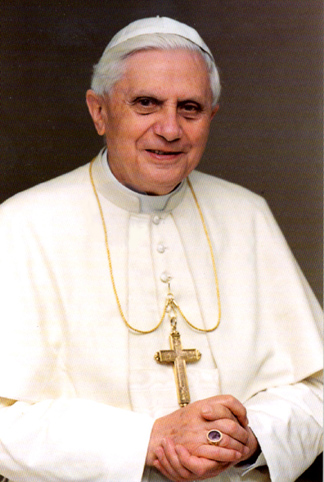Vatican moves to ease Anglicans' entry into Catholic Church
 Vatican City - Pope Benedict XVI has created a new structure to allow Anglican church congregations to effect wholesale transfers into the Catholic church, the Vatican announced Tuesday.
Vatican City - Pope Benedict XVI has created a new structure to allow Anglican church congregations to effect wholesale transfers into the Catholic church, the Vatican announced Tuesday.
The move targets members of the Anglican church disaffected with its more liberal policies, including the ordination of women and homosexuals as priests and bishops.
However, the Catholic church's announcement did not make clear how the mechanics of transferring an entire congregation from one institution to the other would work.
The new Catholic structure, called Personal Ordinariates, will allow Anglicans to enter full communion with the Catholic Church while "preserving elements of the distinctive and rich Anglican spiritual and liturgical patrimony," Cardinal William Levada said at a Vatican news conference.
Personal Ordinariates, the number of which has yet to be specified, will be headed by an ordinary - a former Anglican prelate who will be appointed by the Catholic church to provide spiritual guidance to Anglicans who have chosen to embrace the Catholic faith.
The structure will be introduced through a soon-to-be-published Apostolic Constitution said Levada. He heads the Vatican's main orthodoxy watchdog, the Congregation for the Doctrine of the Faith.
The constitution will allow either former Anglican priests or unmarried bishops to be appointed as an ordinaries.
"The (Catholic) church has shown a generosity to those married Anglican priests who wished to be ordained in the Catholic Church as married men," Levada said.
However, while married former Anglican bishops would be able to become Catholic priests, they cannot become bishops because of the Catholic and Orthodox churches' tradition that the holders of such positions be celibate, Levada explained.
He said the new canonical structure is a response to the many requests that have come to the Vatican over the years from Anglicans wishing to see a full mending of the split between Catholicism and Anglicanism.
The split dates from the 16th century, when England's King Henry VIII decided to divorce against papal orders.
"Hopes of an imminent reunion seemed to recede," Levada noted, despite an historic rapprochement between the 1.1 billion member Catholic Church and the 77-million Anglican communion that began in in the 1970s under Pope Paul VI.
Since then the Anglican church has introduced the ordination of women, the election of openly gay bishops and the blessing of same- sex unions, moves unacceptable to the Vatican, but which have also been contested within the Anglican Church itself, particularly in Africa and the United States.
Levada said he is "not worried" that the Vatican's move, apparently targeting disillusioned Anglicans, would damage ecumenical dialogue between the Catholic and Anglican churches.
In the past, Catholic bishops in Britain have warned that attempts to draw in former Anglicans appeared to take advantage of the divisions within the Anglican Church.
Levada denied this and referred to a joint statement issued in London on Tuesday by the Vatican's archbishop of Westminster and Rowan Williams, the archbishop of Canterbury and spiritual head of the global Anglican church.
The Vatican's decision "brings an end to a period of uncertainty" for Anglicans wishing to join the Catholic Church, the statement said, adding that it was fruit of "the dialogues of the past forty years."
"The ongoing official dialogue between the Catholic church and the Anglican communion provides the basis for our continuing cooperation," the joint statement said. (dpa)